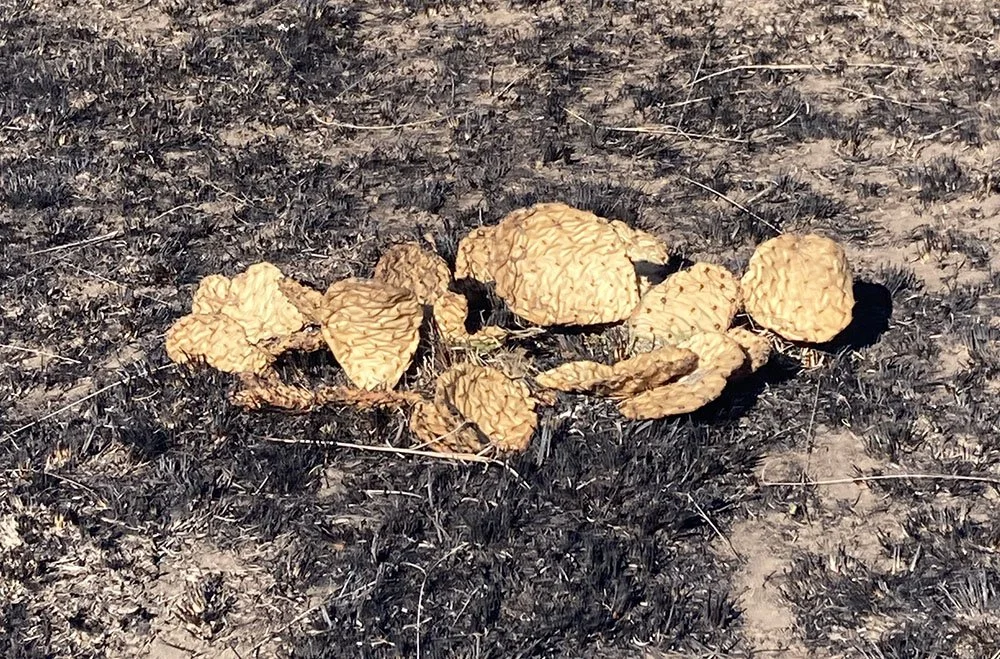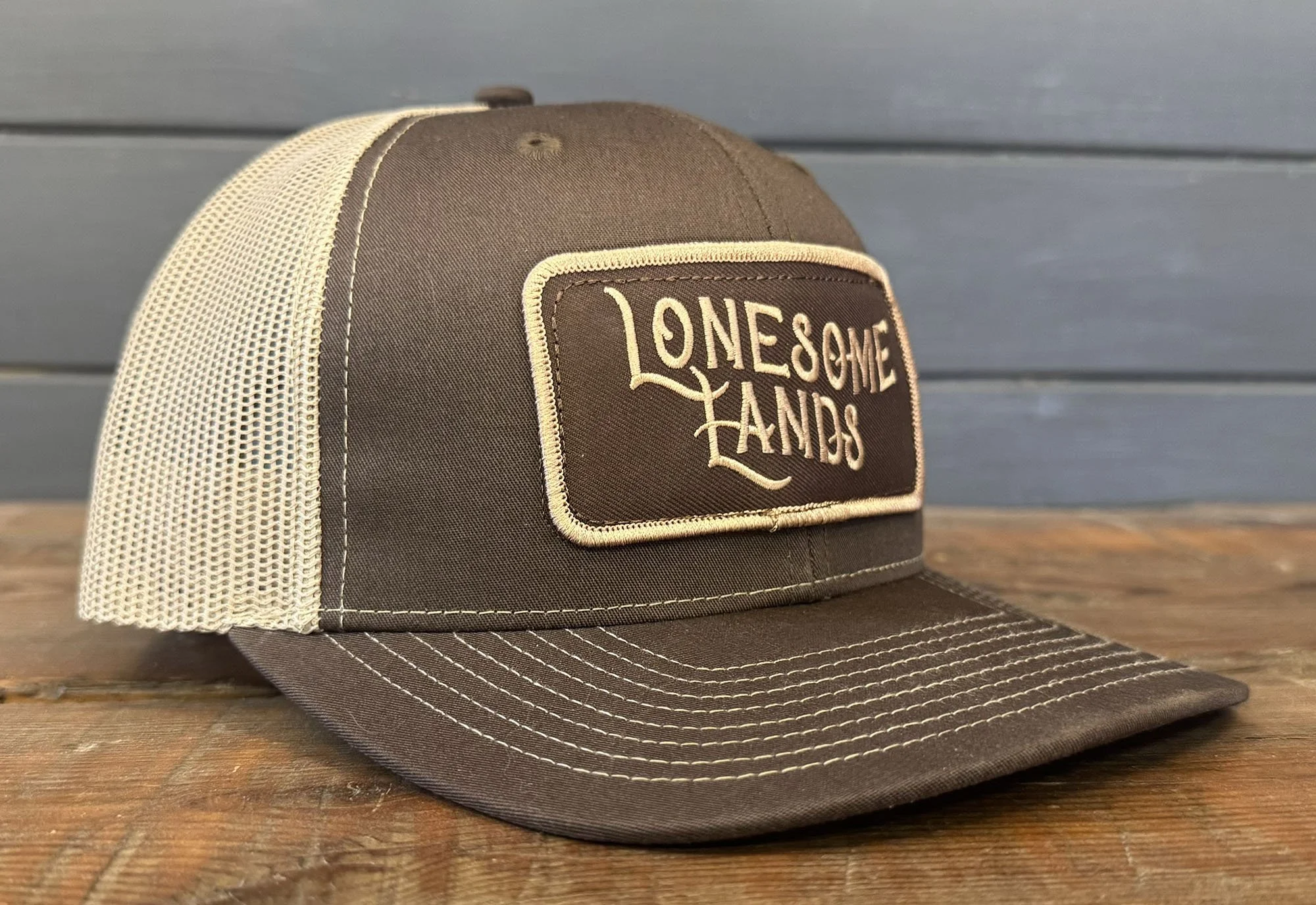Saving the Seven Bar Ranch from the Smokehouse Creek Fire
Haley and David Estes, Jackie and William Clark, owners and protectors of the Seven Bar Ranch.
By Shad Sullivan
I could tell he had his fill of the past ten days. And, as I looked across the horizon I could see why. It truly was a baron wasteland. But the old saying, “it takes one to know one,” rang true to me as I reached out to shake his hand. The lines in his face were familiar to me and I am certain, drawn from a lifetime of hard work on the open prairie. There is just something about the people of the plains that is recognizable. Maybe it’s the no-nonsense demeanor, maybe it’s the tone and the language, or maybe it is the wisdom in those lines filled by decades of the hot and cold sun and the ever-present “panhandle wind” along with everything it carries. Like the fodder of the rolling tumbleweed, the grit of a dust storm from the north, driving ice and snow or the ashes of a prairie blaze that left a path of destruction as far as the eye could see. In every direction.
“Hello, I’m William Clark,” come in here and sit down. So, I did and the conversation that followed was one of two ranchers just talking ranching. Initially, I think William was skeptical of my visit, but I had no ill-intentions or agenda in tow and our conversation easily surmounted the wonder. As we sat in the living room of their perfectly organized ranch home, William, his wife Jackie and their daughter Haley easily spoke of the past and how they came to be. Our family histories and the hardships they overcame as people of the plains was very similar. William mentioned that one of his maternal ancestors held the name Cowan. I knew then his roots ran deep because down the county road sits a historical marker telling the story of the Miami-Mammoth Kill Site, with the name of C.R. Cowan as the land owner, nearly 100 years ago.
We talked of tornadoes and blizzards and green grass, and finally, we talked about the fire. Actually, we talked about many of the fires. The Smokehouse Creek Fire, was the third major fire that the Clark family has successfully defended their home against since 2006. Not to mention the minor fires. To my surprise, I felt that the Clarks were “almost” prepared for such a catastrophe. When I drove into the headquarters, I noticed that the perfectly manicured yard extending out into the prairie over one hundred feet all the way around the outfit. Fire mitigation and experience from the 2006 and ’17 fires helped delineate the fire line between the dry grass and the scorched. So did water hoses, buckets and shovels.
Anyone with fire experience knows that it is a self-absorbed machine. But a prairie fire has its own personality, creates its own weather and presents as a mysterious beast. Add 70mph winds and it becomes a raging monster, searing everything in its path with respect to nothing moving to and from as it pleases. The Smokehouse Fire was no different.
Through the wind the Clark’s could see the fire coming far in the distance which allowed them to move a few sets of cows to the headquarters. Jackie traveled to town to shelter where she would ride out the storm, while William, Haley and her husband David held the line at the ranch and prepared for battle. The confusion in my own mind as they relayed the stories of the next 36 hours to me was profound. I can only imagine what it was like for them, then ad emotional stress, fatigue, thirst and lack of sleep. It was messy. 83-year-old William graded fire lines with his recently purchased maintainer, while Haley and David fought with garden hoses a tank trailer and five-gallon buckets. The smoke ahead of the fire caused a black-out and then the finger-like lines of fire over-took them.
William’s thoughts retreated to past fires where he witnessed burning cotton-tail rabbits running ahead of the main wall, igniting the prairie every which way they ran.
The Smokehouse Creek Fire was consuming for the Seven Bar, which is the name of the Clarks ranch. After Haley took me on a several hour tour of the ranch, I estimate that it decimated 99.9 percent of their prairie. Only the forage standing near the headquarters that Haley and David worked so hard to save amounted to about 10-15 acres of grazing left. Admittedly, the Clarks feel blessed that the loss of animal life on their ranch was minimal, but the damaged it left in its path to the land will be seen and felt for years to come. The heat from the fire scorched the rocky outcroppings on the canyon walls and slowly burned uphill melting everything in its path, including yucca, prickly-pair and new-born calves. There is no grass, none. And over much of the territory the crown of the grass plant is gone, only the scorched earth is left to show off a sparse dust-devil sweeping up the soot here and there. Without rain, the March winds that will surely come will be unwelcome. Until then, the Clarks will feed every single day.
For many ranchers across the region the tragic loss of livestock was immediate and some producers worked the next few days ending the torment many cattle were suffering through. Not unlike the devastation blizzards often bring to the panhandle, the physical damage to the cattle that lived will be discovered for months to come. For some ranchers the financial and emotional toll will be insurmountable. One 75-year-old rancher stated, “I’m no quitter, but I’m not sure how many times I can start over.” The hardship won’t stop at the ranch gates. Agriculture, specifically cattle ranching, is the backbone of many communities in the Texas panhandle. The viability of these communities is dependent on farmers and ranchers and vice-versa. There is much work be done in these communities in the days to come.
While the land starts its very slow recovery, and ranchers lick their wounds, assess and re-engage, volunteers from all over the country continue to poor out donations of every kind. If you want to know what America is… look to the scorched wasteland in the panhandle of Texas. A place where nothing is wasted, including the Texas Spirit.







